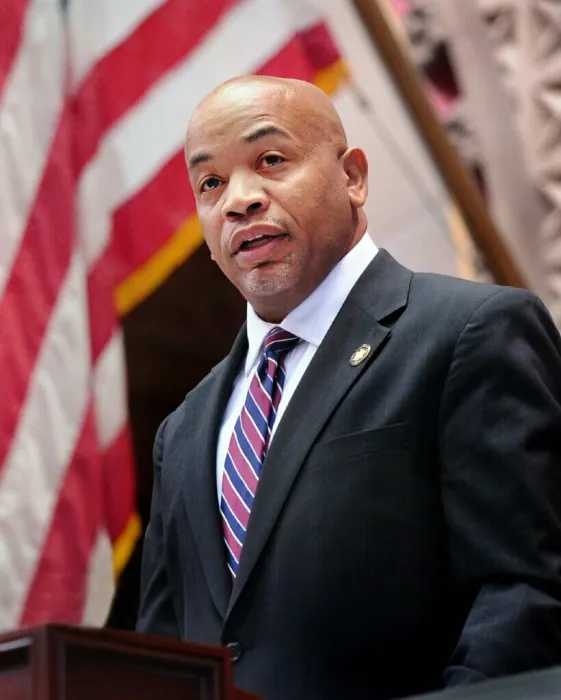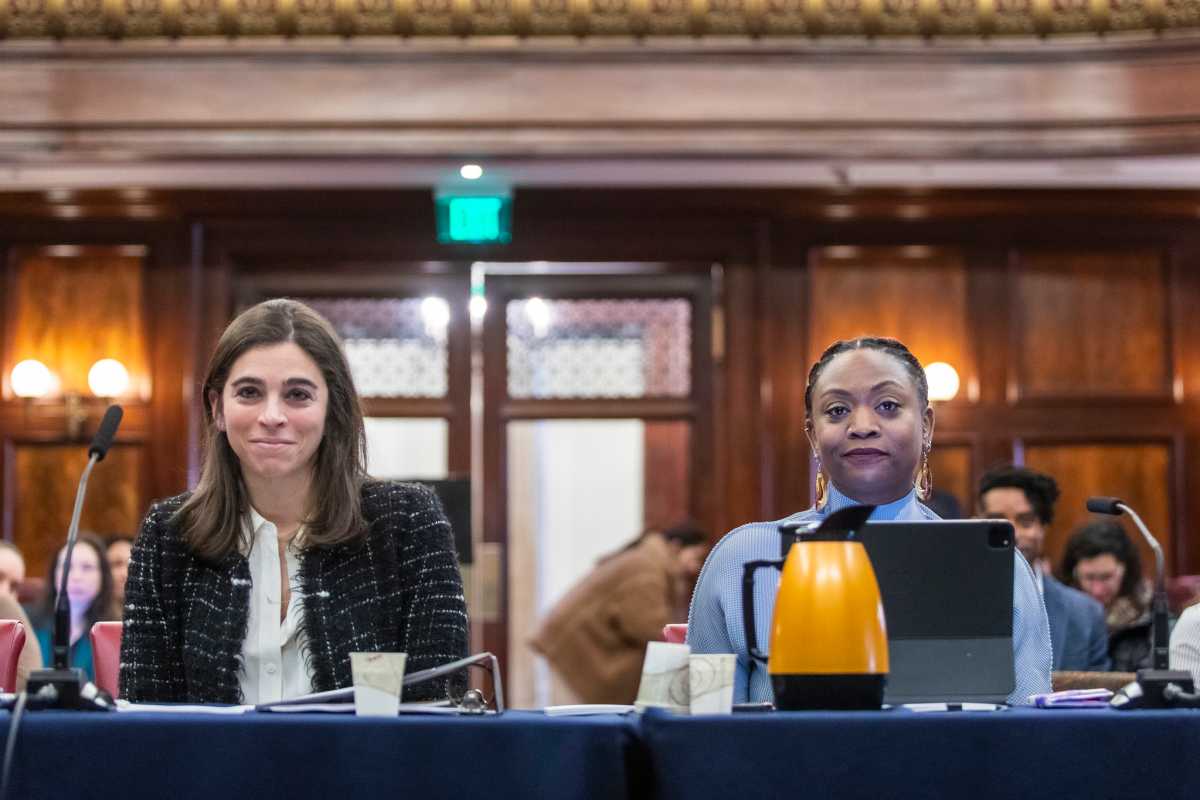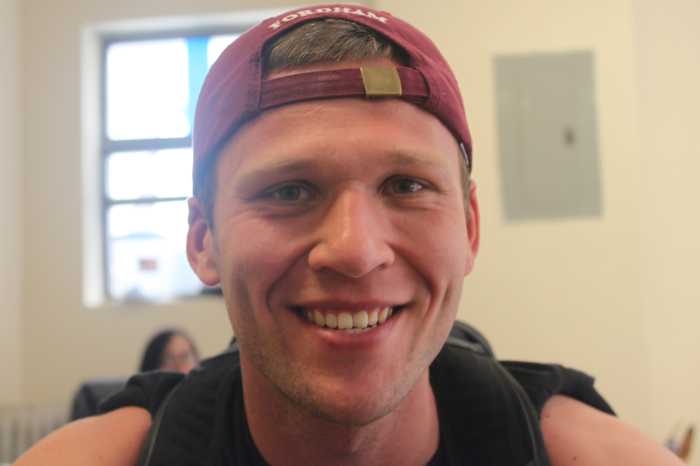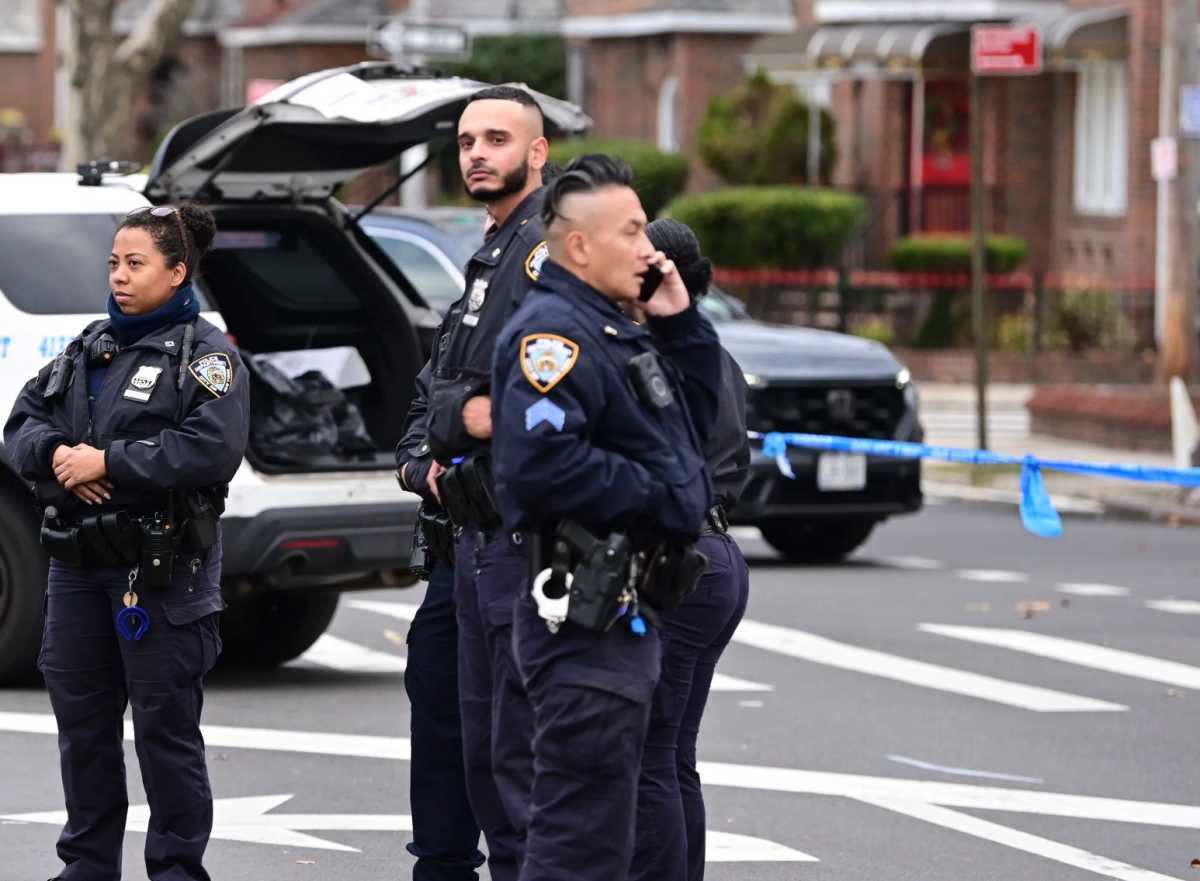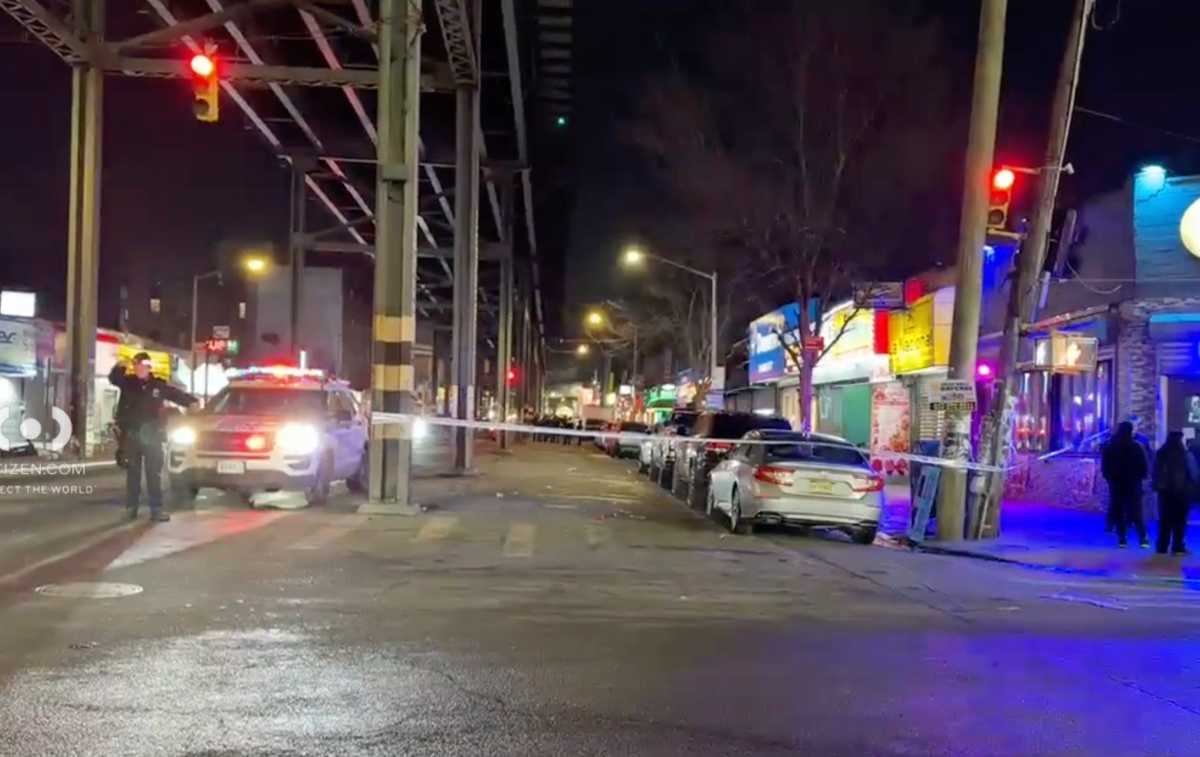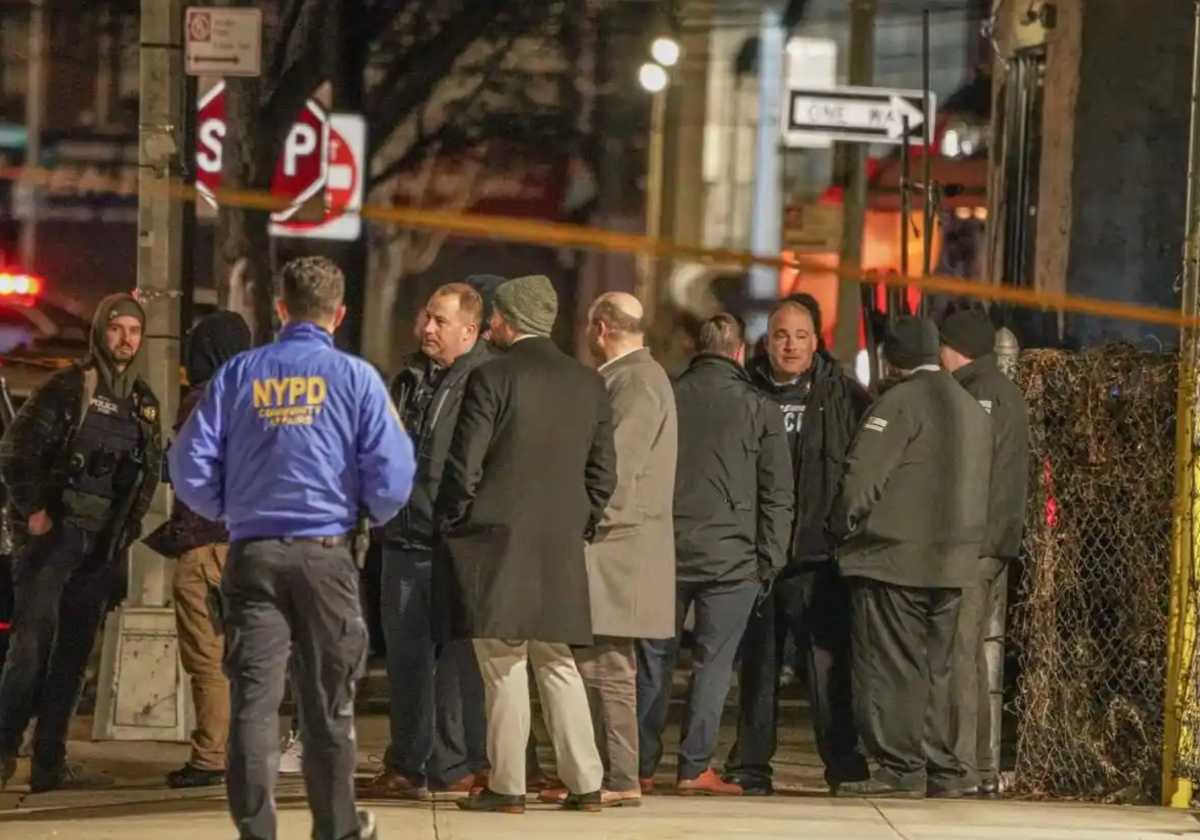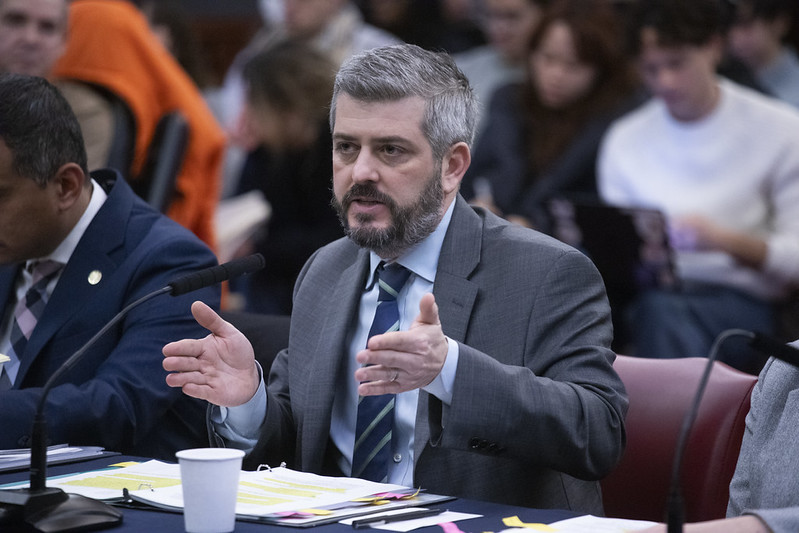Assembly Speaker Carl Heastie told reporters in Albany on Tuesday that lawmakers had reached a tentative agreement to modify the state’s 2019 discovery reform law, which currently mandates that prosecutors promptly share evidence in criminal cases.
State legislators have spent months negotiating with Gov. Kathy Hochul and district attorneys over proposed changes to the law. The revised deal aims to ease some of the stringent requirements around evidence disclosure and make it harder for cases to be dismissed due to missing or late evidence.
Criminal justice advocates and public defenders argue that Hochul’s push to amend the law amounts to a rollback of legislation designed to protect the rights of accused New Yorkers to a fair and speedy trial.
But Heastie said lawmakers and the city’s top attorneys had reached compromises on narrowing the circumstances under which criminal cases can be dismissed due to missing or incomplete evidence. While he didn’t share specific details, the speaker expressed optimism that legislators would soon clear one of the most contentious policy hurdles delaying the state budget negotiations.
“I believe we worked through, and we have a framework on having the discovery issue resolved,” Heastie told reporters Tuesday. “I just briefed my conference and we’re in a good place.”
Hochul held off on celebrating the deal Tuesday, telling reporters, “It ain’t over till it’s over.”
“Let me be assured that we have the deal that I want to have because I’ve said countlessly, there is no Budget without this being settled,” Hochul said. “I have been dogged about that and unrelenting in my position.”
The state enacted the discovery reform law, known as “Kalief’s Law,” in honor of Kalief Browder, a Bronx teenager who spent over three years on Rikers Island awaiting trial for a low-level theft charge—despite prosecutors lacking sufficient evidence to convict him. Browder’s mental health deteriorated during his incarceration, and two years after his case was dismissed and he was released, he died by suicide.
Public defenders and criminal justice advocates say the law helps protect accused New Yorkers from wrongful convictions, prolonged pretrial detention, and coercive plea deals. However, Hochul and some domestic violence survivor advocacy groups argue that the law’s stringent evidence-sharing requirements have resulted in violent offenders being released on “technicalities.”
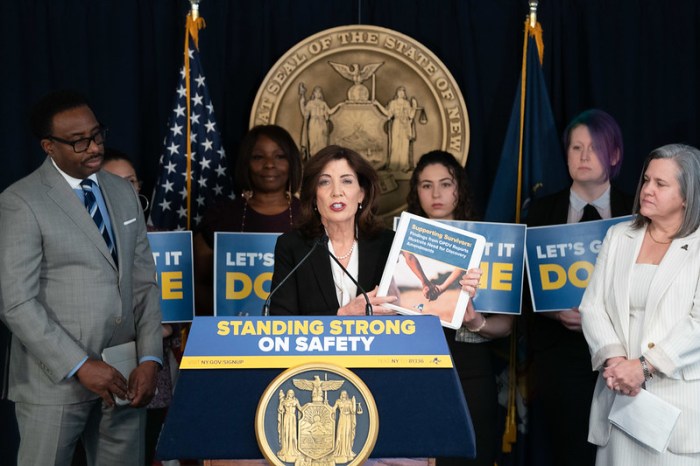
Nathaniel Fields, CEO of Urban Resource Institute—the city’s largest provider of domestic violence shelters—told the Bronx Times that the Bronx has the highest rate of domestic violence homicides, citing data from the New York City Domestic Violence Fatality Review Committee. Shortly before Speaker Heastie announced the tentative deal, Fields said he supports modifications to Kalief’s Law, arguing that changes to the statute are crucial for protecting victims who come forward against their abusers.
“ We definitely want to ensure that victims aren’t unintentionally harmed by technicalities and so some of these reforms speak to that,” Fields said. “We need to be able to have sufficient time to produce the required information so that we don’t release individuals into the community, into the Bronx to go on to do harm.”
Fields said that when domestic violence charges are dismissed it can erode a victim’s trust in the justice system and keep them from coming forward about abuse.
“For the many victims that we’ve engaged, often some of these systems have failed them,” Fields said. “The idea that they have moved forward and involved the legal system and again it may be seen by them another system that has failed them. The likelihood of relying on that system, again, could be lowered.”
Heastie indicated that one key area of compromise involved case dismissals. Under the current law, a failure to meet discovery deadlines can result in dismissal, but Hochul’s proposed changes would raise the threshold, making such dismissals more difficult to obtain.

Public defenders argue that the proposed change is unnecessary, pointing to a 2021 Court of Appeals decision in People v. Bay that established a legal precedent guarding against dismissals based on technicalities. In that ruling, the court held that before a case can be dismissed for discovery violations, judges must consider whether prosecutors acted in good faith and exercised due diligence in meeting evidence-sharing requirements.
Heastie said Tuesday that People v. Bay served as “the basis” for some of the Assembly’s compromises on modifying the discovery reform law. He added that lawmakers also addressed a key concern raised by district attorneys—including “prejudice,” or whether missing evidence would significantly impair a defendant’s ability to mount a defense, in judicial consideration of dismissals.
However, public defenders maintain that the Bay ruling already provides sufficient legal guidance, making changes to Kalief’s Law unnecessary.
“The sad truth is that since the discovery reforms went into effect, prosecutors and police have spent their time and energy trying to rollback the law rather than implement it,” said Eli Northrup, policy director for the Criminal Defense Practice at The Bronx Defenders. “In so doing, they have failed survivors. When cases are dropped, it is because law enforcement has failed to exercise diligence.”
Public defenders and criminal justice advocates have criticized Hochul for focusing on rolling back discovery reforms while allegedly overlooking alternative solutions to prevent case dismissals and protect domestic violence survivors. They cited a letter signed by more than 20 domestic violence advocacy groups opposing the proposed changes, arguing that survivors are often criminalized themselves—and, like all defendants, deserve timely access to evidence to build an effective defense.
The Bronx Defenders argue that instead of blaming discovery reform for case dismissals, law enforcement agencies should focus on improving communication and information-sharing between police and prosecutors. The organization supports a bill introduced by State Senator Zellnor Myrie and Assembly Member Micah Lasher that would grant prosecutors direct access to NYPD databases, streamlining the discovery process without altering Kalief’s Law.
Northrup also questioned the governor’s motivations for pushing the proposed changes.
“The Governor is trying hard to score political points by focusing on this issue. But the truth simply does not fit her narrative,” Northrup said.
Heastie said Tuesday that lawmakers are still working out details and specific language for the tentative deal, but said that all the parties were in a “good place.”

